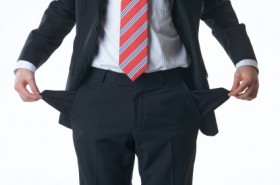Top 5 Money-Wasting Activities
Many Americans are feeling growing pressure to tighten their budgets and start saving. Cutting out frivolous purchases seems like the easiest solution, but you could be spending extra on other things and not even realize it.
Based on Investopedia’s article “Top 6 Mindless Money Wasters,” here is a list of extraneous expenditures you should look out for:

1. Convenience Stores
Convenient as they may be, these stores are smaller therefore prices are often marked up. The best way to avoid dashing into one of these stores for a snack or drink is to plan ahead. If you know you are prone to buying a soft drink or coffee on the way to work, head to a grocery store and buy in bulk or invest in a coffee mug. Many people spend far too much on drinks that are unhealthy. If you can cut soft drinks out of your diet you will be better off financially and health-wise. The convenience you receive is not worth the price you pay for the product. If you can, go a few extra blocks to the grocery store and save a couple bucks on your purchase.
2. Cell Phone Plans
Reading through phone plans can be a tedious but important process. Many people do not bother to adjust their plans to their monthly minute usage. If you are constantly going over your minute limit, maybe it’s time to upgrade to a different plan. Although your new plan may cost $10 to $20 more per month, you could save more by not paying more per additional minute. On the opposite end, if you are not using all your minutes check to see if there is a different plan you can switch to so you are not paying for unused minutes.
3. Unnecessary Bank Fees
The new financial reform has had many people buzzing about how it will affect free checking accounts. This means you should monitor your banking accounts even closer. Read the fine print that comes with your account. Look into the maintenance fees, ATM fees and other account rules and regulations. To avoid getting slapped with one of these fees it may be best to use a credit card to make certain purchases.
4. Magazines
Magazines are the perfect fix for those who need some lightweight literature to have in case of some downtime. Although you may not consider yourself a heavy magazine reader, if you pick up 6 copies at the store a year you are already paying more than a 12-issue, yearlong subscription. A yearlong subscription typically costs $18 and if you commit to two years you could find prices as low as $24 ($12 per year). The huge savings are worth the investment in some extra reading material.
5. Credit Card Fees
Credit cards can be your best friend or worst enemy. If you do not know how to avoid high credit card fees they can put a dent in your budget. There should be no annual credit card fee for those with good credit history and who do not hold an elite-level card. You can avoid fees by being responsible with your credit card and making the monthly payments on time.
Combining these tips with smart spending will ensure that you are doing everything in you power to make the most financially literate decisions. To learn more about smart spending check out this article on the Top 5 Timeless Money-Saving Tips.

